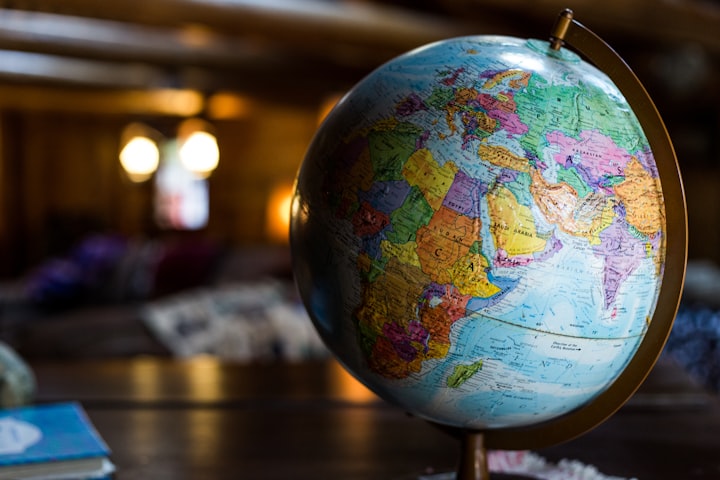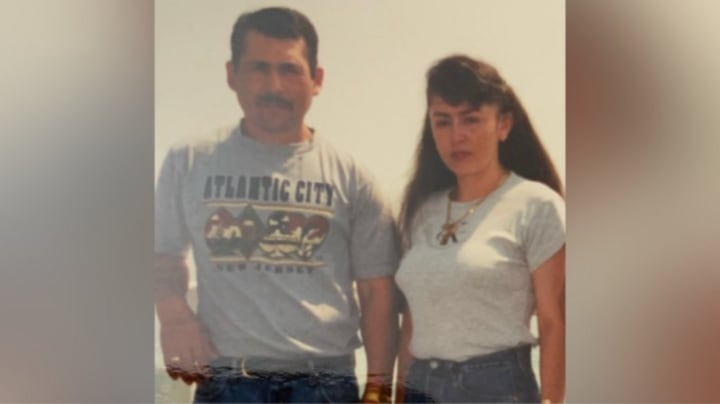Stuck Between Two Worlds: The Struggles of a First Generation American
Let me explain how I’m living in two very different societies and neither of them fully accept me.

Being born as a first-generation American carries both rewards and struggles when it comes to our experiences. I have never been more torn apart about my identity but as the years go by I’ve come to accept that I must create this unique space for myself where I can find a perfect balance of my two worlds.
As a young child, your parents are the main contributors to what and to who you will be exposed to. Both my parents came from a third-world country and their definitions of freedom and riches are vastly different than the traditional ones from America’s standards.
My parents both had to deal with a corrupt government and a civil war when they were young children, leaving them to go into survival mode during their adolescence. They weren’t concern about which career path they should pursue or how to stylishly dress-up for school because the imminent dangers were lurking at every corner.

Benjamin Henriquez (Father) and Sonia Henriquez (Mother) at the top of the Twin Towers back in 2000.
Their experiences brought about my upbringing and they had a very different mindset than other American parents who were born in The United States. On top of being the firstborn, I had to create my pathway and figure out the culture of how a “typical American” lives, while balancing my parents’ culture and how to succeed in my academics with no guidance.
My earliest memory of feeling different from the American culture was when I brought my father to my ‘back-to-school’ night to discuss with my teachers how I was performing in my classes. Since my father didn’t understand English I had to piece together what my teacher had said about my grades in my mediocre Spanish. I explained to him that I was performing well and that I was a well-behaved student. It was at that moment that I realized my father will never truly comprehend what I was accomplishing in my academics.
It still breaks my heart at times knowing he won’t understand what I went through to get to this point in my career and through my academics. But as I said before both my parents are coming from a completely different world and lifestyle in comparison to mine and even with that they still try to be as supportive as they can.
There were several instances where I knew I didn’t fully belong in the “American society” and that’s mainly due to the language barrier and cultural cues that I didn’t partake in. For instance, growing up I never attended summer camp or any outdoor activities. It was an out of reach concept because my parents were always working to provide for us and didn’t have time to take us to these events. But the American culture loves these sorts of community engagement activities because their children get to interact with their neighbors and/or classmates.
Interacting with others is the best way of diversifying your perspective and breaks you out of your comfort zone. Growing up my closest friends were like-minded individuals with similar ethnicities as mine. My parents are the same way, their main types of friends are like-minded people but that created a limited exposure to various kinds of people from different economic class, race, ethnicities, etc.
However even if I hung out with people with a similar background as mine, I began to realize that I wasn’t fully accepted as a full-blown Latina because I was ‘white-washed.’ The first time I began to realize this was when one of my family friends pointed out that I had a slight “gringa” accent when I spoke Spanish. My entire childhood I was asked by many people, “Don’t you speak Spanish at home? Do you even like speaking Spanish? Why can’t you pronounce this word properly?”
It was as if they wanted to discredit my validity as a Latin-American. This brought many years of self-doubt in my ability to speak Spanish and insecurity whenever I spoke my language. But as time went on, I grew confident of my abilities since speaking it, hearing it, and reading it comes second nature to me.
However, many of my older relatives are very traditional and often speak “street Spanish” or “country Spanish” which is where some of their jokes or phrases simply go over my head. But that shouldn’t discredit me from my ethnicity.
There’s a lot of traditions that the Latino culture does differently in terms of Holiday celebrations. Christmas for me was always a confusing time. The television depiction of Christmas was celebrated on Christmas Day and the night before Santa would come down the chimney to deliver the gifts but why do Latinos celebrate Christmas on the 24th and at what time does Santa come if we’re up partying until 3 am?
As silly as that might sound, it’s these little moments where you begin to realize that you don’t fully belong to the traditional American culture that was shown on television.
I never knew what the Macy’s Parade was until I was much older, I wasn’t exposed to Starbucks growing up until I worked at one myself, and I had no idea what Magnolia bakery was until I worked at my internship in the city.
My upbringing is unique because I understand that I am very fortunate and blessed to be in a country where I didn’t feel like I needed to survive for my safety. But the unspoken pressure of your family to perform the best in your classes and academics because of your parents’ sacrifices can be suffocating at times. There’s constant guilt of “you have these luxuries that we were never given.”
It’s learning how to accept and appreciate your foundation blocks while trying to add a newly redesigned structure on top. This analogy of balancing my Latin-American identity has helped me grow into the person I am today. I’ve gained the ability to shapeshift according to my environment. But I can walk proudly into a room speaking Spanish-only, I am never ashamed in telling my coworkers that my parents are immigrants, and I will always help Latinos who require help due to the language barrier.
Every day I am walking into two worlds but I wouldn’t be who I am and where I am without both of my worlds merging into one another. So for my fellow first-generation Americans, be proud of your background, and never be afraid to break barriers.






Comments
There are no comments for this story
Be the first to respond and start the conversation.